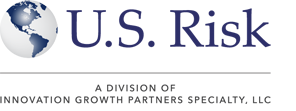Insights
 Managing Workers’ Compensation Claims
Managing Workers’ Compensation Claims
November 15, 2023
Claims management in workers’ compensation programs is a critical component of a comprehensive workplace health and safety strategy. It involves the timely and effective handling of injury claims, ensuring that employees receive the appropriate medical care and financial support while they are unable to work. This article explores some of the complexities of managing workplace injury claims.
To learn more about healthcare insurance solutions, visit our Workers’ Compensation page.
Essential Workers’ Comp Claims Management Strategies
Claims management for workers’ compensation programs typically involves several interconnected parts that work together to ensure the process is efficient, fair, and in compliance with relevant regulations. Here is an outline of the primary components of effective claims management:
- First Notice of Loss (FNOL): This is the initial report made by an employee after an injury occurs. It starts the claim process, and accurate and prompt reporting is crucial.
- Claims Investigation: Claims adjusters or investigators gather information to determine the validity of a claim and the extent of the employer’s liability. This may involve reviewing accident reports, medical records, and witness statements.
- Case Management: A case manager may be assigned to coordinate the care of the injured worker, liaising among healthcare providers, the injured employee, and the employer to ensure appropriate and cost-effective medical treatment.
- Benefit Delivery: Once a claim is approved, the benefits, whether they be medical expenses, lost wages, or rehabilitation costs, must be delivered to the injured worker in a timely and accurate manner.
- Medical Cost Management: This includes efforts to control costs through networks of approved providers, utilization reviews to prevent unnecessary medical procedures, and bill review services to ensure the charges are in line with the usual and customary rates.
- Dispute Resolution: When there is a disagreement over aspects of a claim, such as the extent of injury or the compensation due, a mechanism for resolving disputes is needed, which can include mediation, arbitration, or litigation.
- Return-to-Work Program: These programs focus on getting the injured worker back to work as soon as medically possible, which may initially involve light-duty positions or work accommodations.
- Anti-Fraud Measures: Claims management includes procedures to detect and prevent fraudulent claims, which can add unnecessary costs to the system and can harm the integrity of workers’ compensation programs.
- Regulatory Compliance: Ensuring that all parts of claims management are compliant with federal, state, and local regulations is critical to avoid legal repercussions and to ensure fair treatment of all parties involved.
Benefits of Effective Claims Management
Effective management of workers’ compensation claims and the implementation of return-to-work (RTW) programs can provide significant benefits for employers, including:
- Cost Savings: Streamlined claims processes reduce expenses and proactive RTW strategies can lower insurance premiums by minimizing claim payouts.
- Enhanced Productivity: Keeping experienced employees in the workplace, even in a modified capacity, helps maintain productivity levels.
- Boosted Morale: A supportive approach to injury management fosters a positive workplace culture and employee loyalty, potentially reducing staff turnover.
- Legal Protection: Transparent and fair claims handling can decrease the likelihood of litigation, saving potential legal costs.
- Compliance: Adhering to claims management regulations avoids fines and legal penalties.
With effective claims management systems in place, employers can also help to reduce recurring workplace injuries and shorten the length of time injured workers are away. These benefits alone help decrease the indirect costs associated with injuries and workplace absences.
Ultimately, risk mitigation strategies and initiatives like return-to-work programs promote the well-being of employees, as well as mitigate financial losses for employers, underscoring the importance of a balanced and proactive approach to managing workers’ compensation claims. ◼

